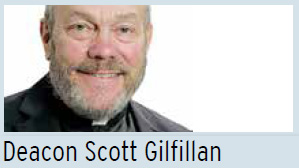 One day, honeybees appeared in great numbers on plumes rising above the pampas grass by my mailbox. They found a treasure trove of pollen from the late summer blooms and celebrated perhaps their last hurrah before settling in for the winter.
One day, honeybees appeared in great numbers on plumes rising above the pampas grass by my mailbox. They found a treasure trove of pollen from the late summer blooms and celebrated perhaps their last hurrah before settling in for the winter.
I was fortunate enough to capture a photo of one bee as it was readying itself to dive into the plumes and gather more pollen. From the heavy pollen sacks on its hind legs, the bee had already had a good day.
The photo captures a moment, one laden with beauty and significance. The bee has a single-minded focus, aligning itself with a new plume. There is a present promise: more pollen to add to its swollen sacks. There is also a future promise: the little miracle that will transform these microscopic bits of pollen into droplets of sweet golden honey and provide food for a new generation in the hive.
The ancient Greeks had two words for time: “Chronos” and “Kairos.” Chronos is time as we generally know it, “chrono”-logical time. It is the time that slave-like rules our day, set by the position of the sun or the digital signal on our cell phones. Kairos, however, is a moment filled with meaning. It transcends time and is laden with beauty or significance.
Some Kairos moments completely alter the expected trajectory of our lives. Being present at the birth of my first child was a Kairos moment. My mind was flooded with a new realization as I held the newborn infant. The life of this child was literally and figuratively in my hands. I was given a new name, Dad, which conveyed a breathtaking responsibility.
The message from the bee: strive to make every moment a Kairos moment. Rather than look ahead to what’s next or behind to what was, open your hearts to what’s now. The bee was enjoying what Deacon Jim Bozik of St. Peter Parish in Charlotte called the “sacrament of the present,” in a reflection published online at www.JesuitPrayer.org. Hovering six feet above the ground, the bee was fixed in the divine dance of the present, energized by the sun’s rays and savoring the promise of life.
How can you be more like the bee and enjoy the “sacrament of the present,” cultivating an attitude of what’s now instead of what’s next?
Deacon Scott Gilfillan is a blogger, retreat master and spiritual director. This reflection is adapted from his blog “My Morning Reflections,” about meeting God through reflections on life and nature. Read more online at www.fontofmercy.org.


